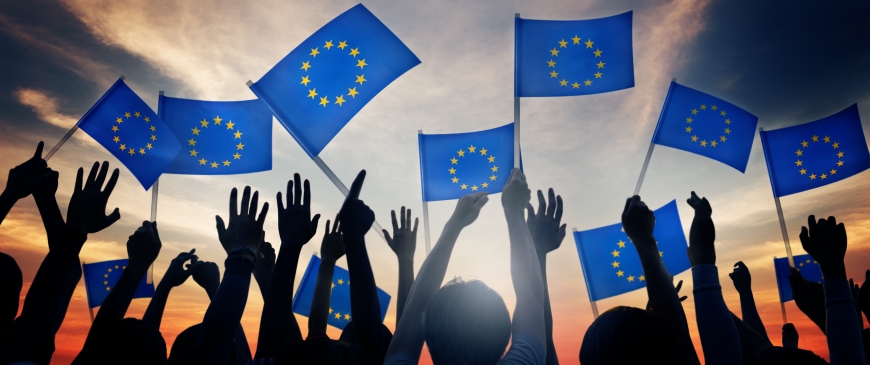
New Commission bows to the populists
Ahead of the European election in May, many feared a populist tide would submerge the European institutions and hand the reigns to Euroskeptics hellbent on dismantling the European project.
The worst didn’t come to pass. Mainstream parties held the line, and the European Commission got a center-right leader, Ursula von der Leyen, who has declared her love for the EU.
Von der Leyen and her colleagues are no doubt experienced, capable politicians. But faced with a European Parliament and European Council that’s more fragmented than ever before, it will become increasingly difficult for them to sidestep pressure from populist leaders.
Von der Leyen, for example, tied herself up early on by making a number of contradictory promises to political groups in the Parliament, including to migration-critics from Poland and Hungary, to secure her nomination as Commission chief.
Her decision to create the new position of “Vice President for Protecting our European Way of Life” (a job she awarded to Margaritis Schinas, the Commission’s former chief spokesperson) is another concession to the populists.
At first glance, the vague title might suggest that Schinas is in charge of championing the joys of being European. And who wouldn’t want to be in charge of bragging about Europeans’ right to extended vacations and compulsory maternity leave? Sadly, that’s not what von der Leyen had in mind.
Instead, the Greek Commissioner’s job will be to coordinate the EU’s migration and asylum policies, while promoting job growth and integration and making sure that Europeans are protected from terrorist and cyber threats.
It shouldn’t come as a surprise that the EU is treating migration as a security question. After all, this is how Brussels has dealt with the fallout of the 2015 migration crisis, and it makes sense from a political point of view. But to be so blunt as to link the need to manage migration with the need to protect Europe’s “way of life” (whatever that means) is taking a page straight out of the populist playbook.
Indeed, a number of MEPs have already voiced their criticism, saying Schinas’ title helps to propagate populists’ claim that there is a link between migration and surges in crime.
But perhaps the biggest elephant in the room is von der Leyen’s decision to keep the word “migration” out of Schinas’ title altogether. This confusing, sitting-on-the-fence approach is symptomatic of European mainstream politicians’ failure come up with a coherent narrative on migration.
The urgency and scale of the migration challenge should have compelled von der Leyen to identify it as needing a “super commissioner” in charge of it — as she did for competition and digital affairs, with the appointment of Margrethe Vestager as the vice president for a “Europe fit for the digital age” and commissioner for competition. The role could have encompassed free movement, border controls and common migration and asylum policies.
Instead, von der Leyen seems to have tried to dodge the issue, playing into the populist narrative with one hand, while trying to keep the other from getting dirty — and in doing so, leaving that part of the political conversation to be dominated by the anti-immigration groups that shout the loudest.
Von der Leyen pledged to lead a “geopolitical” Commission, in contrast to outgoing President Jean-Claude Juncker’s “political” Commission. It’s a commendable approach: She’s taking office at a time of deep political fragmentation in Europe and will have to spend more time building consensus on thorny topics.
But with her designation of a commissioner to protect “our way of life,” she has undermined her own plans and made the migration portfolio — already one of the most sensitive — overtly political.
It’s not a good start. This may turn out to be her first lesson as Commission president: You can’t solve the EU’s political migration problem by appealing to the populists. You’ll only make them stronger, while a solution remains just as remote.
Camino Mortera-Martinez is a senior research fellow at the Centre for European Reform working on EU justice and home affairs, migration, criminal law and data protection.
